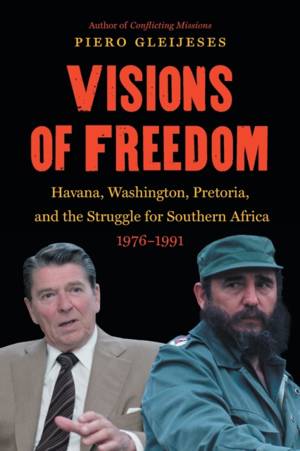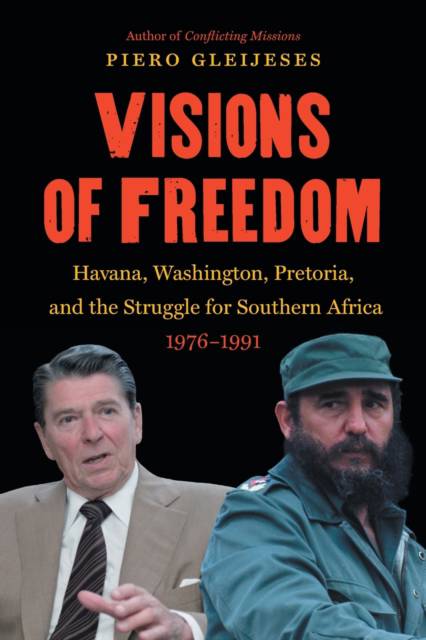
Bedankt voor het vertrouwen het afgelopen jaar! Om jou te bedanken bieden we GRATIS verzending (in België) aan op alles gedurende de hele maand januari.
- Afhalen na 1 uur in een winkel met voorraad
- In januari gratis thuislevering in België
- Ruim aanbod met 7 miljoen producten
Bedankt voor het vertrouwen het afgelopen jaar! Om jou te bedanken bieden we GRATIS verzending (in België) aan op alles gedurende de hele maand januari.
- Afhalen na 1 uur in een winkel met voorraad
- In januari gratis thuislevering in België
- Ruim aanbod met 7 miljoen producten
Zoeken
Visions of Freedom
Havana, Washington, Pretoria and the Struggle for Southern Africa, 1976-1991 /]cpiero Gleijeses
Piero Gleijeses
€ 61,45
+ 122 punten
Omschrijving
During the final fifteen years of the Cold War, southern Africa underwent a period of upheaval, with dramatic twists and turns in relations between the superpowers. Americans, Cubans, Soviets, and Africans fought over the future of Angola, where tens of thousands of Cuban soldiers were stationed, and over the decolonization of Namibia, Africa's last colony. Beyond lay the great prize: South Africa. Piero Gleijeses uses archival sources, particularly from the United States, South Africa, and the closed Cuban archives, to provide an unprecedented international history of this important theater of the late Cold War.
These sources all point to one conclusion: by humiliating the United States and defying the Soviet Union, Fidel Castro changed the course of history in southern Africa. It was Cuba's victory in Angola in 1988 that forced Pretoria to set Namibia free and helped break the back of apartheid South Africa. In the words of Nelson Mandela, the Cubans "destroyed the myth of the invincibility of the white oppressor . . . [and] inspired the fighting masses of South Africa."
These sources all point to one conclusion: by humiliating the United States and defying the Soviet Union, Fidel Castro changed the course of history in southern Africa. It was Cuba's victory in Angola in 1988 that forced Pretoria to set Namibia free and helped break the back of apartheid South Africa. In the words of Nelson Mandela, the Cubans "destroyed the myth of the invincibility of the white oppressor . . . [and] inspired the fighting masses of South Africa."
Specificaties
Betrokkenen
- Auteur(s):
- Uitgeverij:
Inhoud
- Aantal bladzijden:
- 672
- Taal:
- Engels
- Reeks:
Eigenschappen
- Productcode (EAN):
- 9781469628325
- Verschijningsdatum:
- 1/02/2016
- Uitvoering:
- Paperback
- Formaat:
- Trade paperback (VS)
- Afmetingen:
- 152 mm x 231 mm
- Gewicht:
- 975 g

Alleen bij Standaard Boekhandel
+ 122 punten op je klantenkaart van Standaard Boekhandel
Beoordelingen
We publiceren alleen reviews die voldoen aan de voorwaarden voor reviews. Bekijk onze voorwaarden voor reviews.









